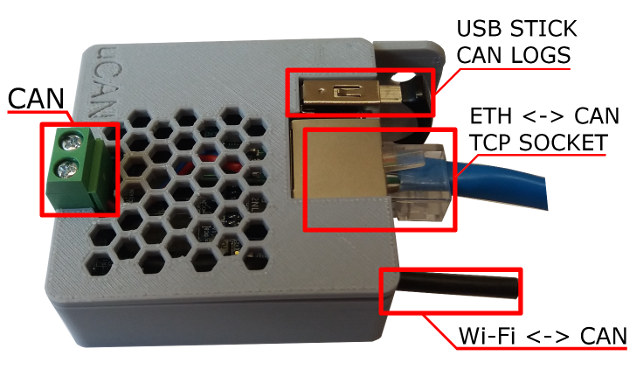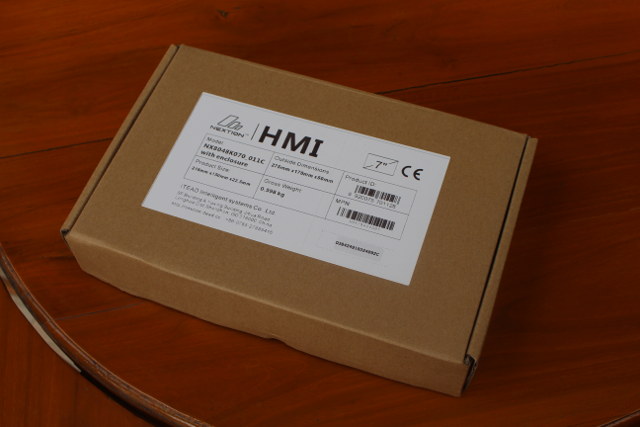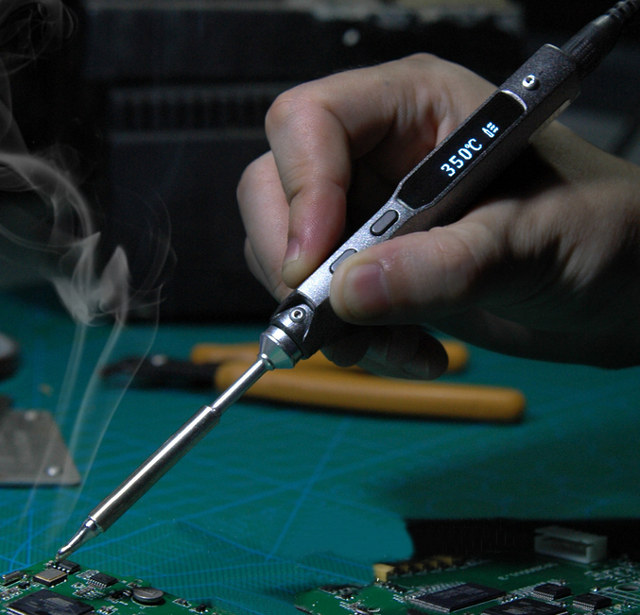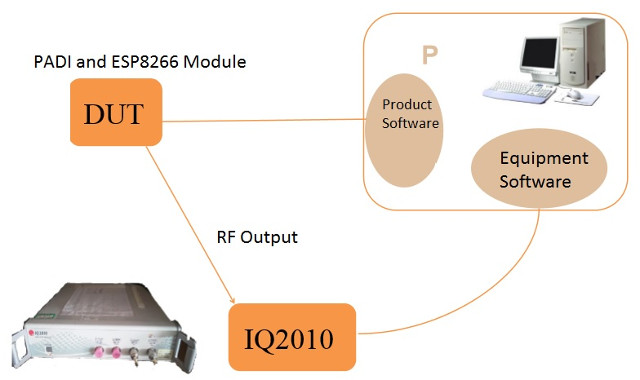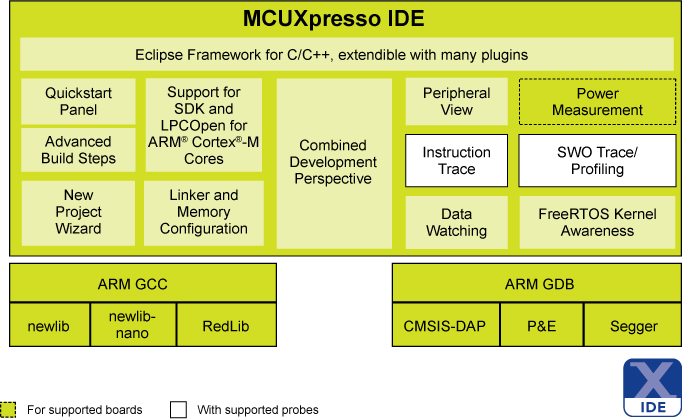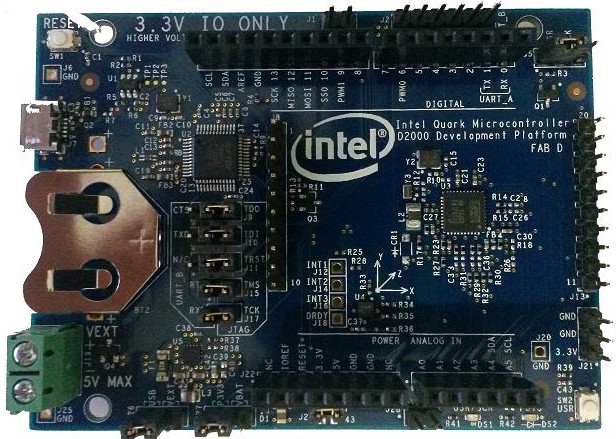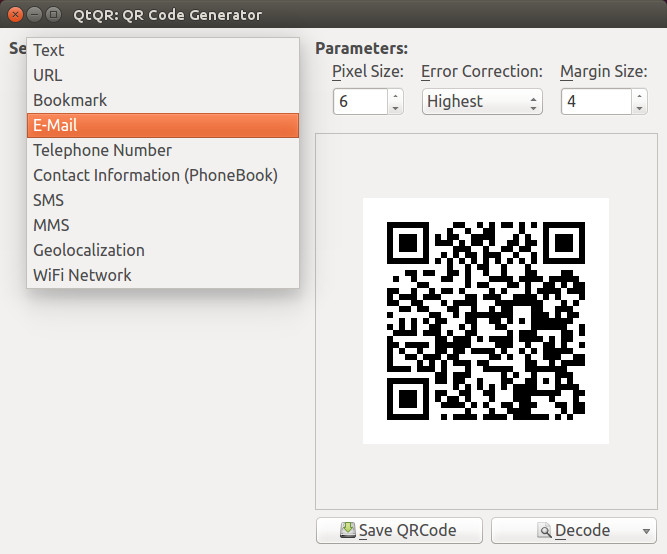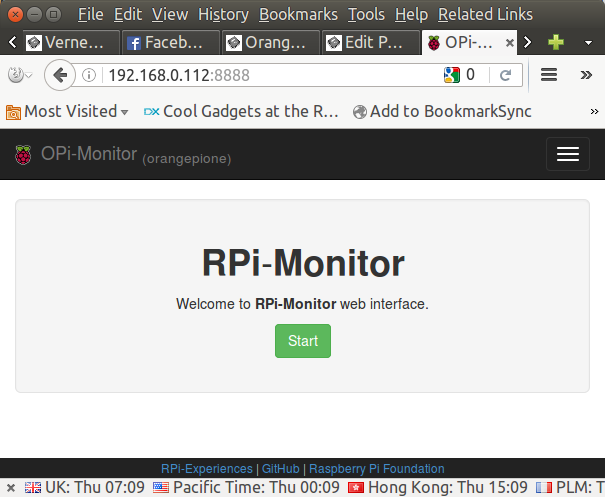The CAN bus is a serial communication protocol used in automotive and automation applications. The guys at ucandevices.pl have designed a solution around Orange Pi Zero board that allows you to log CAN bus data or act as a bridge between the CAN bus and Ethernet or WiFi. They call it “CAN Ethernet converter, CAN Logger, Linux CAN computer”. Sorry, no shorter name that I could find… uCAN (pronounced micro CAN) CAN Bus board specifications: Main Board – Orange Pi Zero with Allwinner H2+ quad core cortex-A7 processor, 256 MB RAM Network Connectivity – 10/100M Ethernet, 802.11 b/g/n WiFi Can Bus – 2-pin terminal block; support for CAN version 2.0 support Power Supply – DC 5V/2A via micro USB port Dimension – 50 x 50 x 20 mm The device comes pre-load with Debian distribution provided by Armbian plus various CAN tools. The getting started video below shows uCANTools web […]
Mini Review of Nextion Enhanced NX8048K070 7″ Display with Enclosure for HMI Applications
I reviewed some Nextion touchscreen a while ago. Those were 2.4″ and 5″ serial TFT displays with optional resistive touch support that could be used in standalone mode, or connected to an MCU board over UART to control external hardware. The user interface could be designed and emulated in Windows based Nextion Editor program before uploading it to the display via UART or micro SD card. ITEAD Studio has recently launched Nextion Enhanced NX8048K070 family of 7″ displays with resistive or capacitive touch panels, and support for GPIOs. The company sent me the capacitive model with enclosure for evaluation, so I’ll have a quick look at the hardware and Nextion Editor in this mini review. Nextion Enhanced NX8048K070_011C Unboxing I received it in a package from “ITEAD intelligent solutions” with basic description with Model: NX8048L070_011C with enclosure Outside dimensions : 275 x 170 x 50 mm (That’s the package dimensions) […]
$46 TS100 Digital Programmable Soldering Iron is Controlled by STMicro STM32 MCU
I’m now using a $4 soldering iron which works most of the time for what I’m doing, but sometimes it does not seem to heat quite fast enough which may cause problems. I’m not soldering that often, so I did not think about getting a better one, but I’ve just come across an TS100 digital & programmable soldering iron with a OLED display showing the current temperature, and controlled by an STMicro STM32F103T8U6 micro-controller. The soldering iron also includes an accelerometer which allow the soldering iron to know when you are using it, so the temperature drops if it is inactive for over 5 minutes (sleep mode), and after 10 minutes of inactivity, the soldering iron automatically turns off. TS100 soldering iron key specifications: OLED Display USB – 1x micro USB port for configuration Temperature Range – 100 to 400 °C; 15 seconds to heat to 300 °C @ 19V; […]
Realtek RTL8710AF (PADI IoT Stamp) vs Espressif ESP8266 (ESP-07) WiFi RF Performance Comparison
After I posted about PADI IoT Stamp IoT kit based on RTL8710AF ARM Cortex M3 WiSoC yesterday, I was soon asked whether I could compare the RF performance against ESP8266 modules like ESP-12. I don’t have any equipment to do this kind of test, except for some simple test like testing range with WiFi Analyzer app, but I remember Pine64 told me they had some comparison data a little while, and accepted to share their results. The test setup is comprised of Litepint IQ2010 multi-communication connectivity test system and PC software, as well as the device under test (DUT) with PADI IoT Stamp (version with u.FL antenna connector) and ESP-07 ESP8266 module as a u.FL connector is required to connect the test system. They’ve tested 802.11b, 802.11g, and 802.11n, but for IoT projects 802.11b is the most important as usually long range is more important than data rate. Test results […]
NXP Unveils MCUXpresso Development Tools for LPC and Kinetis Microcontrollers
After NXP bought Freescale, you had development tools for Freescale Kinetis MCUs such as Design Studio or Kenetis SDK, and others such as LPCXpresso for NXP LPC microcontrollers. The company has worked to unifying software and tools support between its ARM Cortex-M MCU families, and has now announced MCUXPresso software and tools for both NXP Kinetis and LPC MCUs. MCUXpresso unifies thousands of Kinetis and LPC microcontrollers under a set of compatible tools including MCUXpresso SDK – Open-source software MISRA-compliant development kit (SDK) with peripherals drivers, wireless & wired connectivity stacks, middleware, real-time OS, getting started guides, API documentation, and application examples. MCUXpresso IDE – Integrated development environment (IDE) for editing, compiling and debugging. It also integrates MCU-specific debugging views, code trace and profiling, multicore debugging, etc… Both free and professional edition of the IDE will be available, and LPCXpressor and previously Freescale Freedom & Tower platforms will be supported. […]
Intel Launches $15 Quark D2000 Arduino Compatible Board
Intel introduces three new Quark Micro-controllers last year, and I already experimented with Intel System Studio tools, quite similar to the Arduino IDE, and designed for hardware such as Intel Quark D1000 Customer Reference Board. So far the company had not released any boards available to the general public, but this has now changed since they’ve launched the “Intel Quark Microcontroller Developer Kit D2000”. Intel Quark D2000 development board specifications: MCU – Intel Quark D2000 32-bit processor Intel Pentium x86-compatible without x87 FPU @ 32 MHz with 8 KB SRAM, 32 KB instruction flash, 8 KB OTP flash and 4 KB OTP data flash USB – 1x micro USB (JTAG) for power and programming/debugging Sensors – 6-axis Accelerometer / magnetometer with temperature sensor (Bosch Sensortec BCM150) Expansion options: Arduino Uno compatible SIL sockets (3.3V IO only) Booster pack compatible SIL headers (3.3V IO only) Misc – Reset and user buttons, jumpers, […]
Decode or Generate QR Codes in Ubuntu with QtQR and zbar-tools
Sometimes I’ve found myself having to decode a QR code on my computer, and usually I’d just get my Android smartphone, use a QR code app to decode it, and send the results to my computer by email. It works, but wouldn’t it be better to simply do this straight from my computer instead? After a few minutes searching, I eventually found out QtQR graphical utility that can both generate and decode QR codes. In Ubuntu and Debian, you can install it as follows:
|
1 |
sudo apt-get install qtqr |
You can create a QR code with a given pixel size and level of error correction for text, URL, bookmark, email, phone number, SMS/MMS, WiFi network, and so on, and then use the Save QRCode button to save the resulting picture. If instead you simply want to decode a QR code from an image or your webcam use the Decode button, and the tool will […]
RPi-Monitor is a Web-based Remote Monitoring Tool for ARM Development Boards such as Raspberry Pi and Orange Pi
It can be pretty useful to monitor the CPU load, memory and storage usage, and network traffic of your boards, and they are already graphical tools like System Monitor on Ubuntu providing most of the information, and monit can be used on server, but I’ve recently been introduced to RPi-Monitor utility for Raspberry Pi and Orange Pi boards (patched version), that very easy to install, and provide neat chart of many different variables. Since I’m currently playing with Orange Pi One board running armbian, so that’s the platform I’ve used to run RPi-Monitor (OPi-Monitor). The usage should be exactly the same on Raspberry Pi, but the installation steps are little different. To install RPi-Monitor on Orange Pi One, open a terminal or access the serial console, and you can install and start the service with a single command line:
|
1 2 3 4 5 6 7 8 |
sudo armbianmonitor -r Installing RPi-Monitor. This can take up to 5 minutes. Be patient please .... Now patching RPi-Monitor to deal correctly with H3 Now you're able to enjoy RPi-Monitor at http://192.168.0.112:8888 |
It actually took around 8 minutes on my board, as […]


